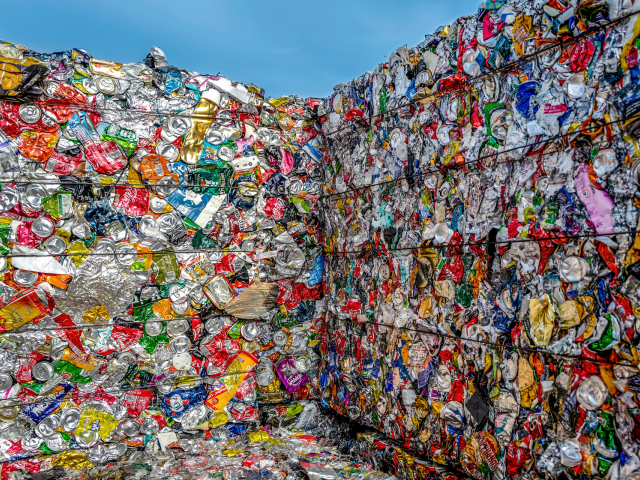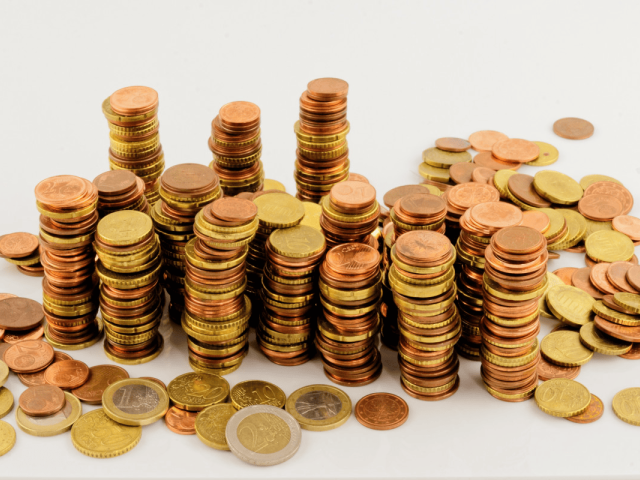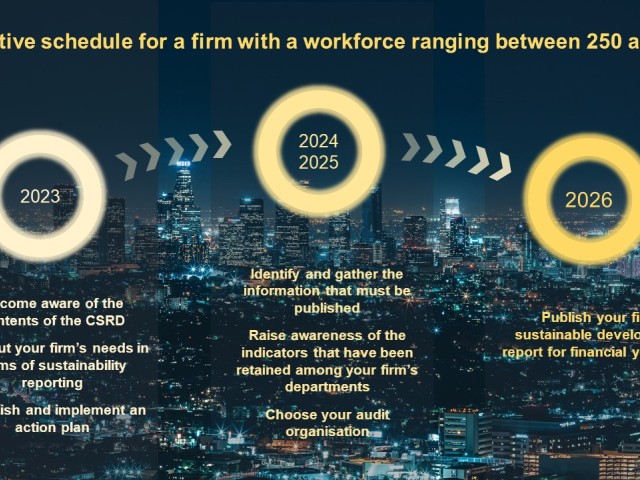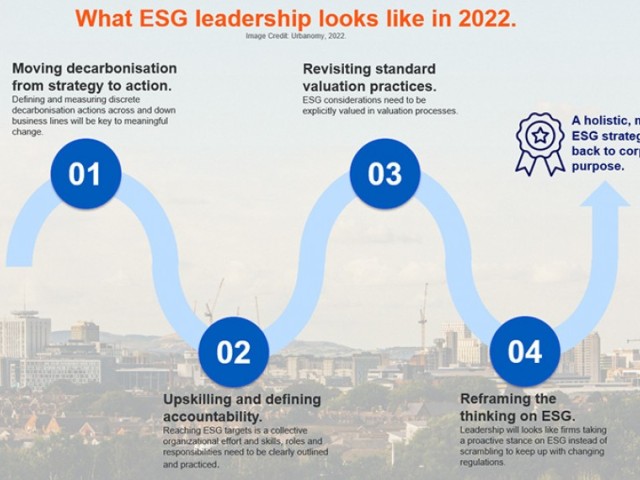By Felix Briaud, Urbanomy
08/11/2023
At first sight, the idea seems appealing.
In an article published in the French weekly "Le Point" earlier this year, Emmanuel Macron's former Secretary of State Brune Poirson and seven other co-signatories call for the "climate dividend" to be adopted as quickly as possible.
Brune Poirson, who has worked in France for three ministers of the Ecological and Solidarity Transition, explains: "When a company is profitable, it can distribute financial dividends to its shareholders. Why shouldn't the equivalent exist for a company whose activity is good for the climate?"
Brune Poirson, who has worked in France for three ministers of the Ecological and Solidarity Transition, explains: "When a company is profitable, it can distribute financial dividends to its shareholders. Why shouldn't the equivalent exist for a company whose activity is good for the climate?"
A premise: the current system is unfair and dysfunctional
The "climate dividend" initiative is therefore based on what has been described as an "inequitable balance": supporters of this initiative are critical of the fact that, at present, investments in decarbonisation are not rewarded.
The typical situation today is as follows:
The typical situation today is as follows:
-
Company A is a 20% shareholder in company B, for example
-
Company B markets a technology that sequesters carbon
-
Thanks to its product, company B has the right to emit carbon credits
These carbon credits are then purchased by various organisations, which use them to value a contribution to the reduction of CO₂ emissions within their own annual reporting. This process is known as "carbon offsetting".
On Company B's side, these carbon credits are an additional source of sales. Great, everyone wins!
Everyone's a winner? Well, not really.
Remember company A, whose investment supported the innovation developed by company B. As things stand, company A has no way of getting value for its investment.
What's even more of a problem is that, according to the GHG Protocol, a carbon balance sheet must take into account the greenhouse gas emissions resulting from the investments made by an entity.
And it is within the notorious "scope 3" that these emissions due to investments will be accounted for. Scope 3 covers "other indirect greenhouse gas emissions": for example, the transportation of raw materials to a production site, the greenhouse gas emissions for which a company's supplier is responsible, the way in which a company's employees travel to work, and all the emissions from the life cycle of a product manufactured by a given company.
As a result, company A will find itself including in its own carbon footprint the greenhouse gas emissions of company B (yes, of company B!) in proportion to the financial stake it holds in the firm. This is because company B has of course been emitting carbon during the manufacturing process of its innovation, despite the fact that this innovation is precisely designed to... reduce CO₂ emissions.
Not only does company A gain no benefit, in terms of carbon, from its investment in company B; in addition, part of company B's emissions are attributed to company A, up to the amount of its investment.
In a dossier devoted to climate dividends, the non-profit organisation Team for the Planet considers the current mechanism to be counter-productive. It would not encourage, and even be detrimental to investment in solutions to decarbonise our economy.
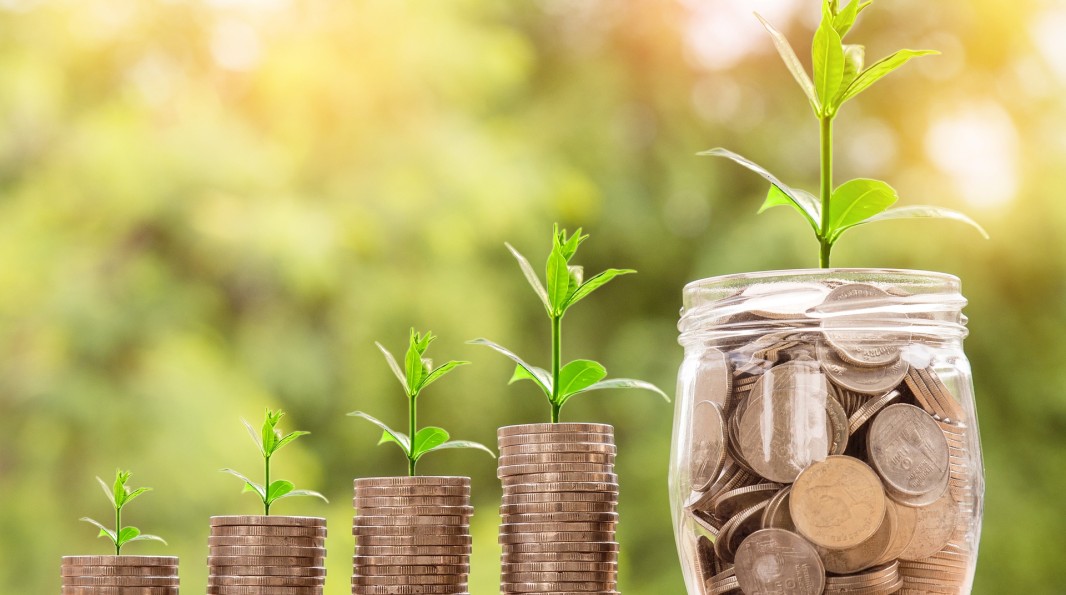
Transcript
Picture of stacks of coins with small plants growing from them
nattanan_23 / PIxabay
Encouraging investment to combat climate change
A video published on a fundraising page for the Climate Dividends Association is aimed in particular at business leaders, banks and investment funds: "at the moment, investors who are financing the road to global carbon neutrality are not rewarded as they should be", it explains.
To address this issue, investors could receive an annual "climate dividend" in return for financing companies which reduce global greenhouse gas emissions through their innovations.
These "climate dividends" would be calculated in proportion to the money invested by company A in company B, based on the number of tonnes of CO₂ equivalent that the innovation would have reduced or sequestered. The association illustrates this initiative with a very telling example: the shareholders of a company that markets the first air conditioning system without HFC gases (that contribute far more to global warming than CO₂) would thus be awarded as many "climate dividends" as the number of tonnes of CO₂ equivalent that this air conditioner will, as a result of its marketing, avoid emitting.
Climate dividends would also be paid annually, with no time limit. A 20% stake, to use the above example, would enable the investor to claim 20% of the emissions reduced by the marketing of an HFC-free air conditioner - recovered by the investor, in the form of climate dividends, so that they can be included in the calculation of its own CO₂ emissions.
The way it works is simple and seems straightforward. The climate dividends pledge to "change the rules of the game".
But consider this suggestion: what if changing the rules of the game didn't mean inventing new HFC-free air conditioners, but rather re-examining the need for them, in a context of frugality?
A few months ago in this article, we discussed the notion of renunciation. Rather than constantly seeking to innovate, a healthy reflex should now be to question the real need for an innovation.
Questioning the business models of companies that rely on finite resources, in a context where planetary limits are rapidly being exceeded, is an idea that is at least as relevant today, if not more so, than the creation of new technologies that are supposed to make up for the harmful effects on the planet that other innovations have had before them.
To address this issue, investors could receive an annual "climate dividend" in return for financing companies which reduce global greenhouse gas emissions through their innovations.
These "climate dividends" would be calculated in proportion to the money invested by company A in company B, based on the number of tonnes of CO₂ equivalent that the innovation would have reduced or sequestered. The association illustrates this initiative with a very telling example: the shareholders of a company that markets the first air conditioning system without HFC gases (that contribute far more to global warming than CO₂) would thus be awarded as many "climate dividends" as the number of tonnes of CO₂ equivalent that this air conditioner will, as a result of its marketing, avoid emitting.
Climate dividends would also be paid annually, with no time limit. A 20% stake, to use the above example, would enable the investor to claim 20% of the emissions reduced by the marketing of an HFC-free air conditioner - recovered by the investor, in the form of climate dividends, so that they can be included in the calculation of its own CO₂ emissions.
The way it works is simple and seems straightforward. The climate dividends pledge to "change the rules of the game".
But consider this suggestion: what if changing the rules of the game didn't mean inventing new HFC-free air conditioners, but rather re-examining the need for them, in a context of frugality?
A few months ago in this article, we discussed the notion of renunciation. Rather than constantly seeking to innovate, a healthy reflex should now be to question the real need for an innovation.
Questioning the business models of companies that rely on finite resources, in a context where planetary limits are rapidly being exceeded, is an idea that is at least as relevant today, if not more so, than the creation of new technologies that are supposed to make up for the harmful effects on the planet that other innovations have had before them.
David against Goliath
Brune Poirson, who has become president of the Climate Dividends Association since stepping down from her French government duties in 2020, nevertheless hopes that the initiative she is championing will "play capitalism at its own game".
But is this realistic? Those of you who were around in 1990 may remember the famous phrase coined by Gary Lineker, a former English football player and sports journalist. He said, not without irony: "Football is a simple game. Twenty-two men chase a ball for 90 minutes and at the end, the Germans always win".
We might be tempted to adapt this witty line and twist it: "Economy is a simple thing. Eight billion human beings chase business and in the end, capitalism always wins".
Secondly, there's the question of vocabulary: should we be talking about 'dividends', a concept closely associated with the idea of unbridled growth?
How can one convince people of the relevance of a tool called "climate dividend", half of the terms of which are closely associated with the free-market economy - the very one responsible for the destruction of a large part of the planet's resources?
But is this realistic? Those of you who were around in 1990 may remember the famous phrase coined by Gary Lineker, a former English football player and sports journalist. He said, not without irony: "Football is a simple game. Twenty-two men chase a ball for 90 minutes and at the end, the Germans always win".
We might be tempted to adapt this witty line and twist it: "Economy is a simple thing. Eight billion human beings chase business and in the end, capitalism always wins".
Secondly, there's the question of vocabulary: should we be talking about 'dividends', a concept closely associated with the idea of unbridled growth?
How can one convince people of the relevance of a tool called "climate dividend", half of the terms of which are closely associated with the free-market economy - the very one responsible for the destruction of a large part of the planet's resources?
The road to hell is paved with good intentions
This raises the question of how much credit (no pun intended) should be given to this new 'green' finance scheme. And whether, in the face of the climate emergency, it is really capable of getting us out of our climate predicament.
A 2021 analysis of the detection of greenwashing in ESG funds (environmental, social and governance criteria, i.e. the dimensions that measure a company's impact) was conducted by EDHEC Business School's Scientific Beta research chair.
This study looked at greenwashing in so-called 'green' finance. What does it reveal? Well, its most striking conclusion is that, over a research period extending from 2011 to 2020, climate criteria only accounted for a maximum of 12% of ESG portfolio construction. That's right, and you can deduce the following: the usual financial criteria, such as market capitalisation, accounted for the remaining 88% of the investment strategies of these ESG index funds.
In the summary of their publication, the authors state things very clearly: " De facto, the investment industry, in spite of its promises, does little to reallocate capital in a direction and in a manner that could incentivise companies to contribute to the climate transition."
New ways of reallocating such capital therefore remain to be found: time will tell whether climate dividends might be part of the solution.
A 2021 analysis of the detection of greenwashing in ESG funds (environmental, social and governance criteria, i.e. the dimensions that measure a company's impact) was conducted by EDHEC Business School's Scientific Beta research chair.
This study looked at greenwashing in so-called 'green' finance. What does it reveal? Well, its most striking conclusion is that, over a research period extending from 2011 to 2020, climate criteria only accounted for a maximum of 12% of ESG portfolio construction. That's right, and you can deduce the following: the usual financial criteria, such as market capitalisation, accounted for the remaining 88% of the investment strategies of these ESG index funds.
In the summary of their publication, the authors state things very clearly: " De facto, the investment industry, in spite of its promises, does little to reallocate capital in a direction and in a manner that could incentivise companies to contribute to the climate transition."
New ways of reallocating such capital therefore remain to be found: time will tell whether climate dividends might be part of the solution.

About the author
Felix Briaud
Felix is Urbanomy's communication, marketing&CSR manager.
A journalist for ten years, he drifted towards data applied to digital advertising. Only recently did he convince himself, by joining the practice, to align his professional life with his personal beliefs about the environment.
Aside from that, Felix is mad about music - particularly that from the 1950s to the 1970s. In this area as in others, he is a bottomless source of fun facts and would happily share a couple with you.
A journalist for ten years, he drifted towards data applied to digital advertising. Only recently did he convince himself, by joining the practice, to align his professional life with his personal beliefs about the environment.
Aside from that, Felix is mad about music - particularly that from the 1950s to the 1970s. In this area as in others, he is a bottomless source of fun facts and would happily share a couple with you.



